Top 10: AI-based IT Monitoring software
Updated: July 31, 2023
AI for IT monitoring refers to the application of artificial intelligence and machine learning techniques to enhance and automate the monitoring and management of IT infrastructure and systems. By analyzing vast amounts of data from various sources, such as logs, metrics, and events, AI-driven monitoring systems can proactively detect anomalies, predict potential issues, and provide real-time insights into the health and performance of IT resources. AI's ability to learn from historical data and adapt to changing patterns makes it invaluable in identifying and resolving complex IT problems more efficiently. Through AI-powered IT monitoring, organizations can achieve faster incident response, reduce downtime, optimize resource allocation, and ultimately improve the overall reliability and performance of their IT environments.
Some of the most popular AI-based IT Monitoring software options are listed below.
See also: Top 10 IT Monitoring software
See also: Top 10 IT Monitoring software
2023. New Relic launches Grok, its AI observability assistant
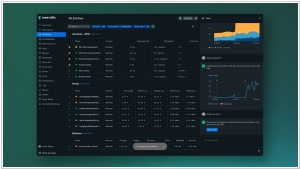
Enterprises and related companies are currently in the midst of integrating large language models into their services. New Relic has announced its own offering Grok, which it claims is the first generative AI assistant for observability. The aim is to leverage a large language model to assist engineers in performing routine tasks within New Relic, such as setting up instrumentation, creating reports, and managing accounts using natural language. The use of these models provides a significant advantage in helping engineers analyze the large amounts of data collected by the service, which is crucial not only for ensuring the performance of a given service but also for managing its associated costs - an increasingly important concern for most enterprises.
2019. Sumo Logic raises $110 million to orchestrate cloud apps with AI
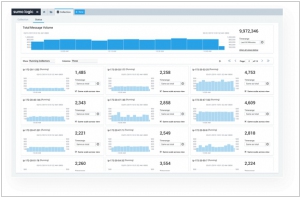
Sumo Logic, a cloud-native platform specializing in machine data analytics and delivering continuous app intelligence, has successfully raised $110 million in a series G funding round. This substantial investment comes on the heels of a remarkable year for Sumo Logic, during which it achieved over $100 million in revenue and surpassed the milestone of 2,000 customers. With a valuation exceeding $1 billion and a workforce of over 500 employees, Sumo Logic boasts an impressive client roster that includes renowned names such as Airbnb, Pinterest, and The Pokémon Co. Offering a wide range of analytics and insights across 150 apps and integrations, Sumo Logic supports clients in building, operating, and securing their applications and cloud infrastructures. The newly acquired funds will be utilized to expand Sumo Logic's engineering, sales, and global operations teams, with a primary focus on enhancing the platform's analytics capabilities across its diverse suite of services.
2017. Splunk expands machine learning capabilities across platform
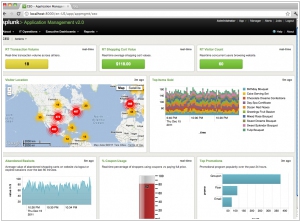
Cloud monitoring provider Splunk is bolstering its machine learning capabilities to facilitate the identification of critical data. The Splunk Machine Learning Toolkit introduces several new features specifically designed for those who prefer a do-it-yourself approach. Firstly, a new data cleaning tool has been implemented to prepare the data for modeling. Additionally, machine learning APIs have been introduced, enabling the importation of both open-source and proprietary algorithms for application within Splunk. Lastly, a machine learning management component allows for seamless integration of user permissions from Splunk into customized machine learning applications. For users seeking a more automated experience, Splunk offers new features such as Splunk ITSI 3.0. Leveraging machine learning, this tool assists in issue identification and prioritization based on the criticality of each operation to the business. These advancements empower users to derive meaningful insights from their data while tailoring the level of involvement according to their preferences.
2016. Splunk unveiled 300 machine learning algorithms for Operational Intelligence
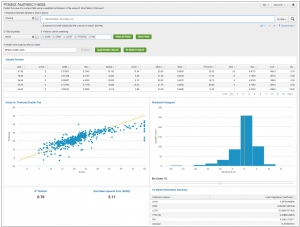
Splunk, a leading provider of Operational Intelligence platforms, has made significant advancements in incorporating machine learning capabilities into its platform, thereby expanding its range of services and capabilities. The company has integrated machine learning at the core of its platform through the introduction of a machine learning toolkit, which can be installed as a complimentary app on top of the Splunk Enterprise platform. This toolkit offers users access to a comprehensive set of 300 machine learning algorithms, with 27 of them conveniently pre-packaged and ready to use. These algorithms cover various categories such as clustering, recommendations, regression, classification, and text analytics. Furthermore, Splunk has enhanced its machine learning functionality within the IT Service Intelligence (ITSI) platform, which was initially introduced a year ago.
2015. Splunk acquired machine learning startup Caspida
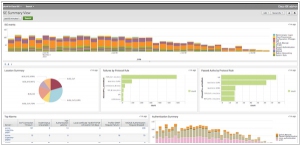
Cloud monitoring provider Splunk has recently acquired Caspida, a startup specializing in utilizing machine learning methods to detect cybersecurity threats both internally and externally. Splunk offers assistance to organizations in managing the influx of machine-generated data from their IT systems, employing data science techniques and automation to derive insights from it. Within its product portfolio, Splunk provides a security solution called Splunk App For Enterprise Security. By acquiring Caspida, Splunk enhances its security capabilities by incorporating the advanced machine learning techniques developed by Caspida. This empowers Splunk to analyze user behavior at a granular level, even for seemingly legitimate users with proper credentials. Splunk's overall approach revolves around data science-driven solutions, delivering automated threat detection and leveraging machine learning to continuously improve its capabilities over time.

